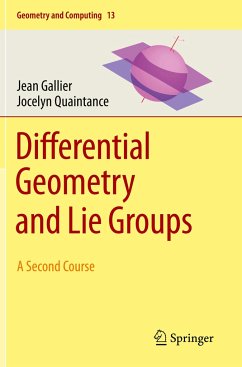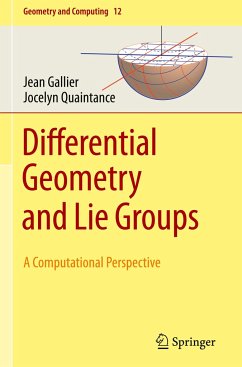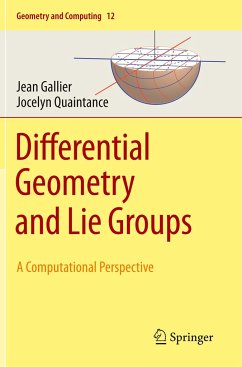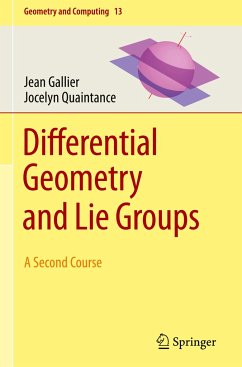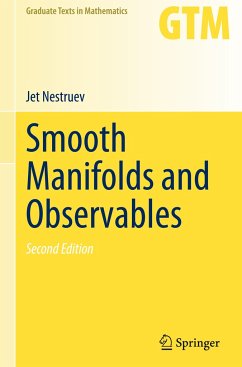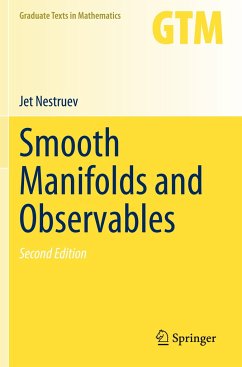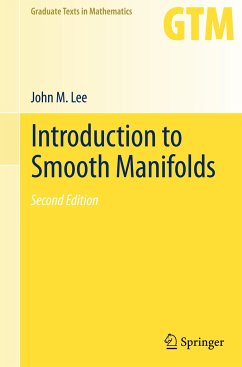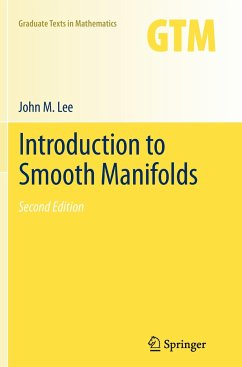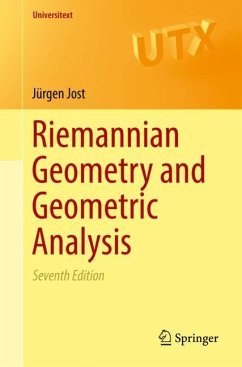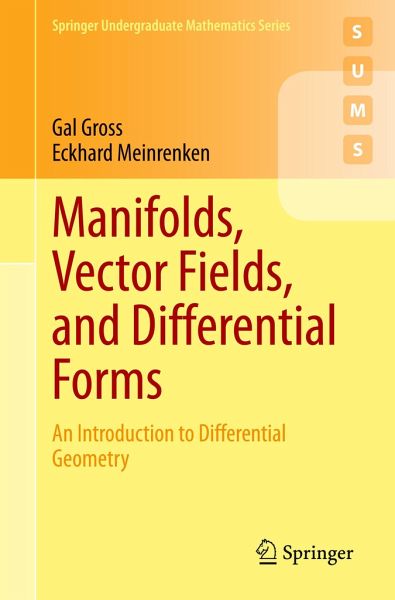
Manifolds, Vector Fields, and Differential Forms
An Introduction to Differential Geometry

PAYBACK Punkte
17 °P sammeln!
This textbook serves as an introduction to modern differential geometry at a level accessible to advanced undergraduate and master's students. It places special emphasis on motivation and understanding, while developing a solid intuition for the more abstract concepts. In contrast to graduate level references, the text relies on a minimal set of prerequisites: a solid grounding in linear algebra and multivariable calculus, and ideally a course on ordinary differential equations. Manifolds are introduced intrinsically in terms of coordinate patches glued by transition functions. The theory is p...
This textbook serves as an introduction to modern differential geometry at a level accessible to advanced undergraduate and master's students. It places special emphasis on motivation and understanding, while developing a solid intuition for the more abstract concepts. In contrast to graduate level references, the text relies on a minimal set of prerequisites: a solid grounding in linear algebra and multivariable calculus, and ideally a course on ordinary differential equations. Manifolds are introduced intrinsically in terms of coordinate patches glued by transition functions. The theory is presented as a natural continuation of multivariable calculus; the role of point-set topology is kept to a minimum.
Questions sprinkled throughout the text engage students in active learning, and encourage classroom participation. Answers to these questions are provided at the end of the book, thus making it ideal for independent study. Material is further reinforced with homework problems ranging from straightforward to challenging. The book contains more material than can be covered in a single semester, and detailed suggestions for instructors are provided in the Preface.
Questions sprinkled throughout the text engage students in active learning, and encourage classroom participation. Answers to these questions are provided at the end of the book, thus making it ideal for independent study. Material is further reinforced with homework problems ranging from straightforward to challenging. The book contains more material than can be covered in a single semester, and detailed suggestions for instructors are provided in the Preface.



